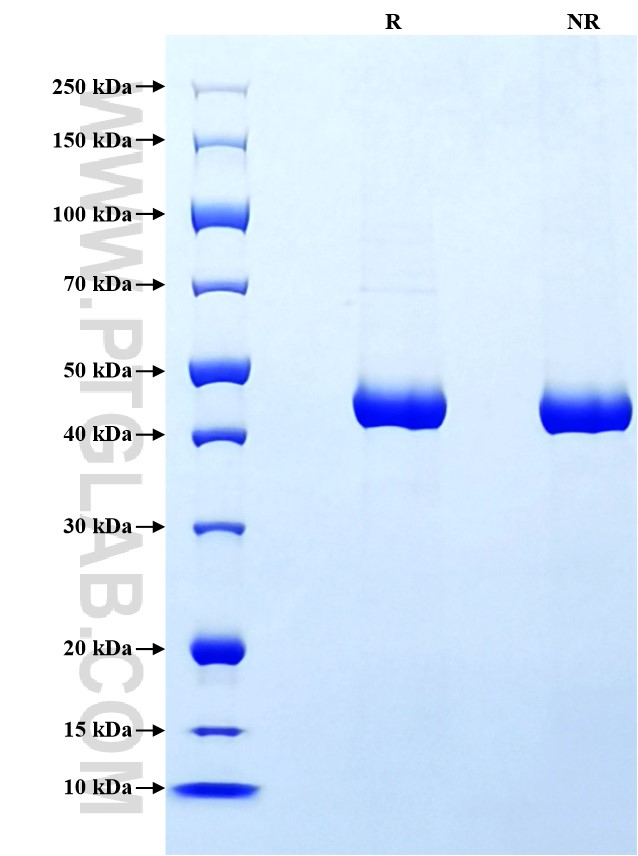Recombinant Mouse Serpin E1/PAI-1 protein (His Tag)
种属
Mouse
纯度
>90 %, SDS-PAGE
标签
His Tag
生物活性
未测试
验证数据展示
产品信息
| 纯度 | >90 %, SDS-PAGE |
| 内毒素 | <0.1 EU/μg protein, LAL method |
| 生物活性 |
Not tested |
| 来源 | HEK293-derived Mouse Serpin E1 protein Thr23-Pro402 (Accession# P22777) with a His tag at the C-terminus. |
| 基因ID | 18787 |
| 蛋白编号 | P22777 |
| 预测分子量 | 44.0 kDa |
| SDS-PAGE | 42-48 kDa, reducing (R) conditions |
| 组分 | Lyophilized from 0.22 μm filtered solution in PBS, pH 7.4. Normally 5% trehalose and 5% mannitol are added as protectants before lyophilization. |
| 复溶 | Briefly centrifuge the tube before opening. Reconstitute at 0.1-0.5 mg/mL in sterile water. |
| 储存条件 |
It is recommended that the protein be aliquoted for optimal storage. Avoid repeated freeze-thaw cycles.
|
| 运输条件 | The product is shipped at ambient temperature. Upon receipt, store it immediately at the recommended temperature. |
背景信息
Serpin E1, also known as plasminogen activator inhibitor 1 (PAI-1), is a protein that belongs to the serpin family of serine protease inhibitors. It is primarily produced by endothelial cells and plays a crucial role in the regulation of fibrinolysis by inhibiting the activity of plasminogen activators, such as tissue plasminogen activator (tPA) and urokinase (uPA). Serpin E1 is involved in a variety of physiological and pathological processes, including fibrinolysis, fibrosis, angiogenesis, wound healing, and the invasion and metastasis of tumor cells.
参考文献:
1. Catarinella G. et al. (2022) Cell Death Dis. 13(8):737. 2. Meltzer ME. et al. (2010) Blood. 116(1):113-21. 3. Janciauskiene S. et al. (2024) Biomed Pharmacother. 175:116618.


